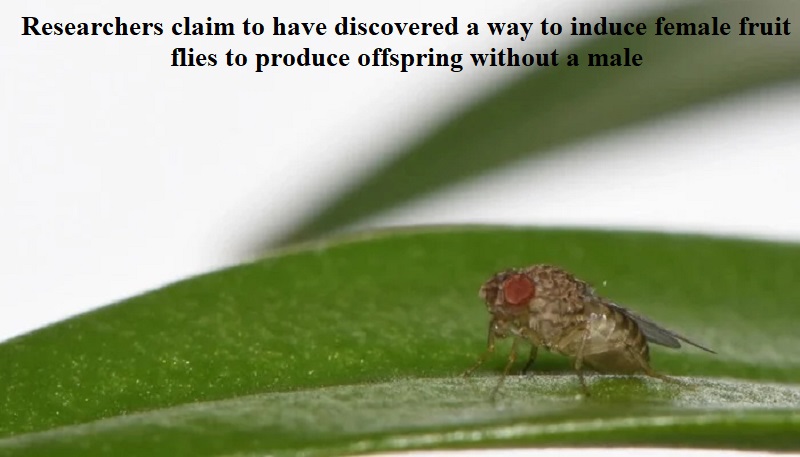
Researchers claim to have discovered a method to induce virgin births in female fruit flies, even in the absence of males, by identifying specific genes responsible for asexual reproduction in one species and genetically modifying another species to exhibit the same trait.
The groundbreaking study, published in the journal Current Biology, spanned six years and involved 220,000 fruit flies. The researchers initially studied a fruit fly species known as Drosophila mercatorum, which exhibited the ability to reproduce through virgin births, also known as parthenogenesis.
By analyzing the genome of this species and pinpointing the gene responsible for virgin birth, the researchers were able to identify the corresponding gene in another fruit fly species, Drosophila melanogaster, and modify it to activate the trait.
The offspring produced by these genetically modified flies were capable of reproduction either through mating with males or through virgin births. According to Dr. Alexis Sperling, the first author of the study and a researcher at the University of Cambridge, the option of virgin birth can be advantageous for species and may serve as a reproductive backup for isolated females.
In the case of insect pests, if there is continued selection pressure favoring virgin births, it could eventually lead to exclusive reliance on this method of reproduction, posing potential problems for agriculture, as females produced through virgin births only give birth to females, effectively doubling their ability to spread.
However, while the study has successfully induced virgin births in fruit flies, Dr. Sperling believes this approach is unlikely to work in mammals. Parthenogenesis has been observed in certain animals, such as lizards and honey bees, but mammals are biologically distinct, making it a non-natural occurring phenomenon in their case.
Dr. Hannah Maude from Imperial College London acknowledges the significance of the research in expanding our understanding of reproduction in the animal kingdom. She emphasizes the importance of genetic diversity in mammals, which provides backup for harmful DNA variants and is essential for the proper functioning of imprinted regions activated specifically from either maternal or paternal DNA copies.
In conclusion, the study on virgin births in fruit flies sheds light on a fascinating aspect of reproduction and genetics. While the findings may not be directly applicable to mammals, they contribute to our broader knowledge of the complexities and diversity of life forms in the animal kingdom.

Post Your Comments